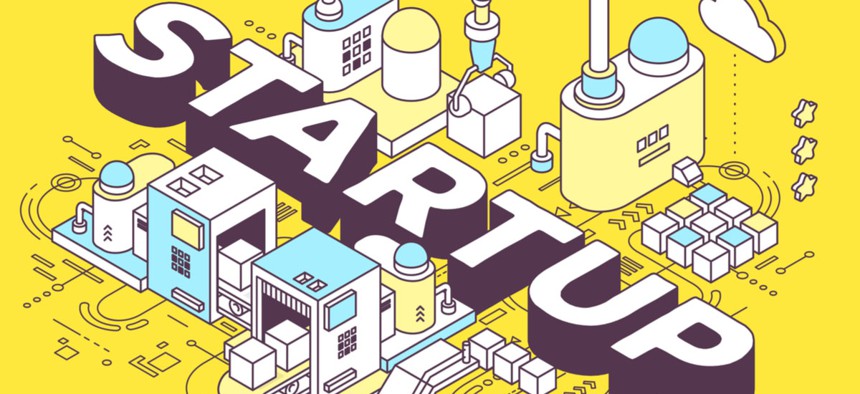Agencies Need to Quit Being Difficult Customers If They Want Startup Tech

wowomnom/Shutterstock.com
Even posting project solicitations in more popular places could help agencies find new partners solutions, tech experts said.
Modernizing federal tech will require the government to work closely with startups and innovators, but before that can happen, agencies must make themselves more appealing customers, according to technology experts.
Agencies will have to adapt to being one of many customers when they work with companies from commercial hubs like Silicon Valley. Government and industry technologists said lengthy timelines and convoluted purchasing processes are deterring many startups from sharing their breakthroughs with federal agencies.
On Thursday, experts offered a variety of strategies for lowering those barriers to entry, ranging from streamlining the Federal Acquisition Regulation to posting project solicitations on TechCrunch.
Within the startup community, “there is a perception the government is going to take a very long time” getting projects over the finish line, said Meagan Metzger, founder and CEO of the IT accelerator DCode, at a forum hosted by GovernmentCIO Media. While some vehicles exist for fast-tracking contracts, she said agencies’ largely opaque procurement process isn’t conducive to fledgling companies driven by quarterly reports.
To address this issue, some agencies have started relying heavily on alternative mechanisms like other transaction authorities to get fresh tech through the door more quickly. Unlike traditional purchases under the Federal Acquisition Regulation, which can take months or often years to award, OTAs can be issued in a matter of weeks.
While former U.S. Chief Information Security Officer Greg Touhill praised OTAs as an attractive alternative to the cumbersome FAR process, panelists agreed shortening project timelines only solves part of the problem. Agencies have a responsibility to make themselves more accessible to the startup community by improving outreach and shying away from overly bureaucratic language, they said.
Christina Monaco, chief ventures officer at the National Geospatial-Intelligence Agency, told Nextgov her office actively shys away from “government speak” because “that language isn’t going to float in the Valley.” Something as simple as favoring common business terms over contracting jargon can make working with government less intimidating and also help startups understand the unique benefits of doing business with government, she said.
NGA and other agencies often take on a significant portion of research and development costs startups would otherwise have to front, and working with government can give companies more credibility when they move to the commercial market, she said.
To that end, agencies must also increase their use of commercial products and limit the amount of customization they request, said Wyn Elder, a partner at the Defense Innovation Unit Experimental, known as DIUx.
“[Agencies] talk themselves into thinking they’re so special then need everything custom built—they’re not as different as they think they are,” he said. Feds often cite cybersecurity to justify bespoke software, he added, but “that loss of control [in the development process] doesn’t mean a loss of security.”
Still, even if startups are open to working with government, agencies don’t always make it clear how they can get involved, panelists said.
“When we’re in the D.C. bubble, we tend to think our problems are transparent,” but they’re not, Metzger said. She suggested sending contact notices to venture capitalists or even printing them in popular tech publications.
However they do it, Metzger added, agencies must engage more with startups and tech innovators to stay protected and competitive in the 21st century.
“The status quo, right now, is our riskiest option,” she said.






